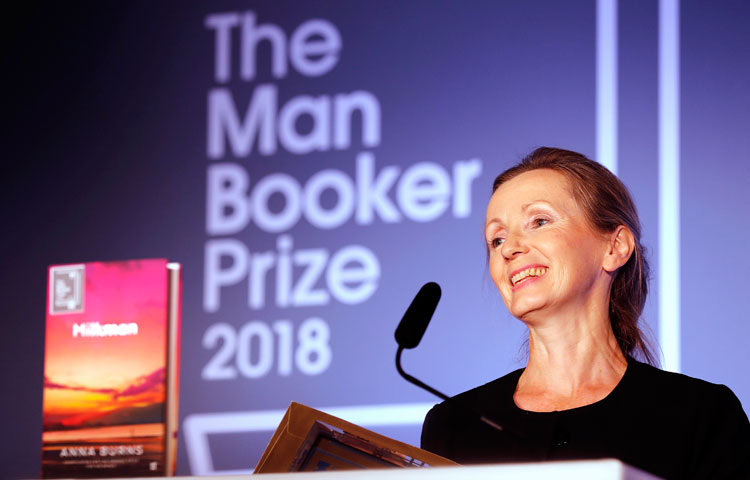Organisers of the Booker Prize, Britain’s most prestigious literary award which has done much to boost the popularity of Indian writers in English, have found a new sponsor following the Man Group’s decision last month to end its 18-year relationship with the world of books.
The £50,000 prize will now be funded by an American charity called Crankstart, which was set up in 2000 by Sir Michael Moritz, a Welsh-born Silicon Valley venture capitalist, philanthropist and author said to be worth $3.4 billion, and his wife, Harriet Hayman, a novelist and a former writer for Life and The New York Times.
“Neither of us can imagine a day where we don’t spend time reading a book,” said Moritz, who studied at Oxford and now lives in San Francisco. He added: “The Booker prizes are ways of spreading the word about the insights, discoveries, pleasures and joy that spring from great fiction.”
There will be all round relief that the prize will not be called Crankstart though it has the worthy aim of supporting “the forgotten, the dispossessed, the unfortunate, the oppressed and causes where some help makes all the difference” but revert on June 1 from the “Man Booker Prize” to simply its original name of the “Booker Prize”.
“These days I’m a global traveller but, just like the Booker, I was born in Britain and before coming to America was reared on English literature,” explained Moritz. “Harriet and I feel fortunate to be able to support prizes that together celebrate the best fiction in the world.”
Helena Kennedy, chair of the trustees, said: “Thanks to Crankstart, we will be able to continue the charitable activities of the Booker Prize Foundation, working with, among others, the National Literacy Trust in prisons, with RNIB (Royal National Institute of Blind People) to make the shortlist accessible to blind and partially sighted readers, and in universities around the UK.”
The financial arrangements were not disclosed except that Moritz and Heyman have committed to an initial five-year exclusive funding term for the Booker.
According to the Guardian, “Moritz worked previously as a journalist for Time magazine, writing a biography of Steve Jobs and Apple before turning to technology investment.
He has been a partner at Sequoia Capital since 1986 and invested $25 million in what was then the tech start-up Google in 1999.
His recent work as an author includes co-authoring Leading with former Manchester United manager Alex Ferguson.”
Recent donations include £75m to Oxford University in 2012, to support poorer students in taking up places to study and inspired, said Moritz, by the generosity of strangers in England who took in his parents as Jewish refugees from Nazi Germany.
Asked whether it was appropriate for a British literary institution to be sponsored by a Silicon Valley billionaire, the Booker Prize Foundation said it was “confident that, in Crankstart, it has found a sympathetic and reputable philanthropic funder which shares the foundation’s values and vision”.
Kennedy described Moritz and Heyman as “real book lovers”: “Many commercial sponsors want opportunities to use the thing for purposes like bringing their guests to the dinner. They are not interested in any of that. Their interest is sustaining good literature.”
The Booker had been much criticised by both authors and the publishing industry for the decision to open it up to anyone writing in English and published in the UK. Former winner Peter Carey called it “an exercise in global corporate branding”, while 30 publishers last year told organisers that the rule change allows “the dominance of Anglo-American writers at the expense of others”.
But the Booker Prize Foundation confirmed that “a sponsor or funder has no say over the rules”, and “there is no plan to reverse the rule”.
There has not been an Indian winner since 2008 when Arvind Adiga got the Booker for The White Tiger.
Previous Indian-origin winners include V S Naipaul for In a Free State (1971); Salman Rushdie for Midnight’s Children (1981); Arundhati Roy for The God of Small Things (1997); and Kiran Desai, The Inheritance of Loss (2006).
Kiran’s mother, Anita Desai (born Anita Mazumdar to a Bengali father and a German mother), was shortlisted for Clear Light of Day (1980), In Custody (1984), and Fasting, Feasting (1999), while Rohinton Mistry similarly was nominated did not win for Such a Long Journey (1991), A Fine Balance (1995), and Family Matters (2002). But as a tag, “Booker nominee” does carry prestige and also sell books.










